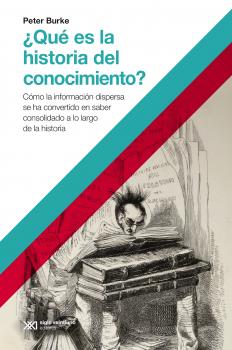ТОП просматриваемых книг сайта:
Peter Burke
Список книг автора Peter BurkeАннотация
From comic verse to practical jokes, pornography to satire, acting to acrobatics, the Renaissance witnessed the flowering of play in all its forms. In the first wide-ranging and accessible introduction to play in Renaissance Italy, Peter Burke, celebrated historian of the Italian Renaissance, synthesizes over forty years’ research, explores the various forms of play in this period, and offers an overview that reveals the many connections between its different domains. While play could be rough, the Church played an increasing role in determining acceptable and unacceptable forms of play, and, after campaigns against violence and obscenity, much of the licentiousness characteristic of the early Renaissance was tamed. This entertaining study of play reveals much about the culture of Renaissance Italy, and illuminates an essential element in human life.
Аннотация
How is knowledge measured? How long does it take us to reflect on something and how long to express our thoughts? Such is the dilemma that the human, social and economic sciences go through, since they face the challenge of understanding complex processes when confronting the urgency of standards, measurements and forms of qualitative and quantitative evaluation that respond to notions of utility, productivity and viability, defined within social, cultural and political realities discordant with those models.Peter Burke. Knowledge, Culture, and Society, compiles a series of conferences given by Peter Burke during his visit to Medellín, but also includes some unpublished works. It constitutes the first publication in English by the Editorial Center of the Faculty, aimed at the internationalization of our programs and to support the acquisition of a second language. It is also one of three publications commemorating the FCHE's 40th Anniversary: the historical review 40 Años Creciendo, Escribiendo y Publicando, the Historia de la Facultad de Ciencias Humanas y Económicas (1975-2015), and now, this academic jewel that encourages the reflection upon our disciplines and the sources that support us as academics and researchers. I hope that Peter Burke. Knowledge, Culture, and Society provides the tools for an interdisciplinary discussion about knowledge in the social and human sciences today, as well as important considerations about the research and methodological challenges posed to us every day. Yobenj Aucardo Chicangana-Bayona Dean
Аннотация
Disability and Impairment introduces professionals working with families to the everyday issues faced by disabled people of all ages in family life. Peter C Burke shows how social attitudes shape the world of the 'disabled family' either positively or negatively and the effects of stigma. He demonstrates the normality of disability – that children are children whatever their label – and the need for a sensitive professional understanding of the impact of both physical and learning disabilities on family members, in order to improve their quality of life. This book covers the spectrum of disability issues, and offers information and advice for professionals working with families and disability, explaining the value of family support, how to validate the feelings of siblings with disabled brothers and sisters, tackling social exclusion and understanding the role of lifelong professional help. Case studies and practice notes make this an accessible reference for social work students and practitioners.
Аннотация
"El periodo en que vivimos está marcado por encuentros culturales de todo tipo, encuentros cada vez más frecuentes e intensos. Sin embargo, reaccionamos ante ello; es imposible ignorar la tendencia hacia la mezcla y la hibridación: del judaísmo Zen a la comida occidental con soja, las religiones New Age, el kung fu nigeriano, las películas de Bollywood o la música reggae o raï. Hay quien celebra estos fenómenos, mientras que otros los temen o los condenan. No es de extrañar, pues, que teóricos culturales como Homi Bhabha, Stuart Hall, Paul Gilroy o Ien Ang se hayan ocupado de este tema en sus trabajos e investigaciones y hayan tratado de analizar y comprender estos complejos desarrollos, o que una gran variedad de disciplinas dedique más atención a las obras de estos teóricos y los procesos de encuentro, contacto, interacción, intercambio o hibridación cultural. En este conciso y brillante ensayo, el celebérrimo historiador Peter Burke examina estos fascinantes y controvertidos fenómenos culturales, hilando teorías, prácticas, procesos y acontecimientos de una manera amena y vibrante. La presente edición cuenta, además, con un estudio preliminar sobre la obra de Peter Burke, a cargo de María José del Río Barredo, especialista en historia cultural."
Информация о книге
Автор произведения Peter Burke
Жанр Документальная литература
Серия Universitaria
Аннотация
Информация о книге
Автор произведения Peter Burke
Жанр Документальная литература
Серия Universitaria
Аннотация
Информация о книге
Автор произведения Peter Burke
Жанр Документальная литература
Серия Hacer Historia
Аннотация
Peter Burke follows up his magisterial Social History of Knowledge, picking up where the first volume left off around 1750 at the publication of the French Encyclopédie and following the story through to Wikipedia. Like the previous volume, it offers a social history (or a retrospective sociology of knowledge) in the sense that it focuses not on individuals but on groups, institutions, collective practices and general trends. The book is divided into 3 parts. The first argues that activities which appear to be timeless – gathering knowledge, analysing, disseminating and employing it – are in fact time-bound and take different forms in different periods and places. The second part tries to counter the tendency to write a triumphalist history of the 'growth' of knowledge by discussing losses of knowledge and the price of specialization. The third part offers geographical, sociological and chronological overviews, contrasting the experience of centres and peripheries and arguing that each of the main trends of the period – professionalization, secularization, nationalization, democratization, etc, coexisted and interacted with its opposite. As ever, Peter Burke presents a breath-taking range of scholarship in prose of exemplary clarity and accessibility. This highly anticipated second volume will be essential reading across the humanities and social sciences.










